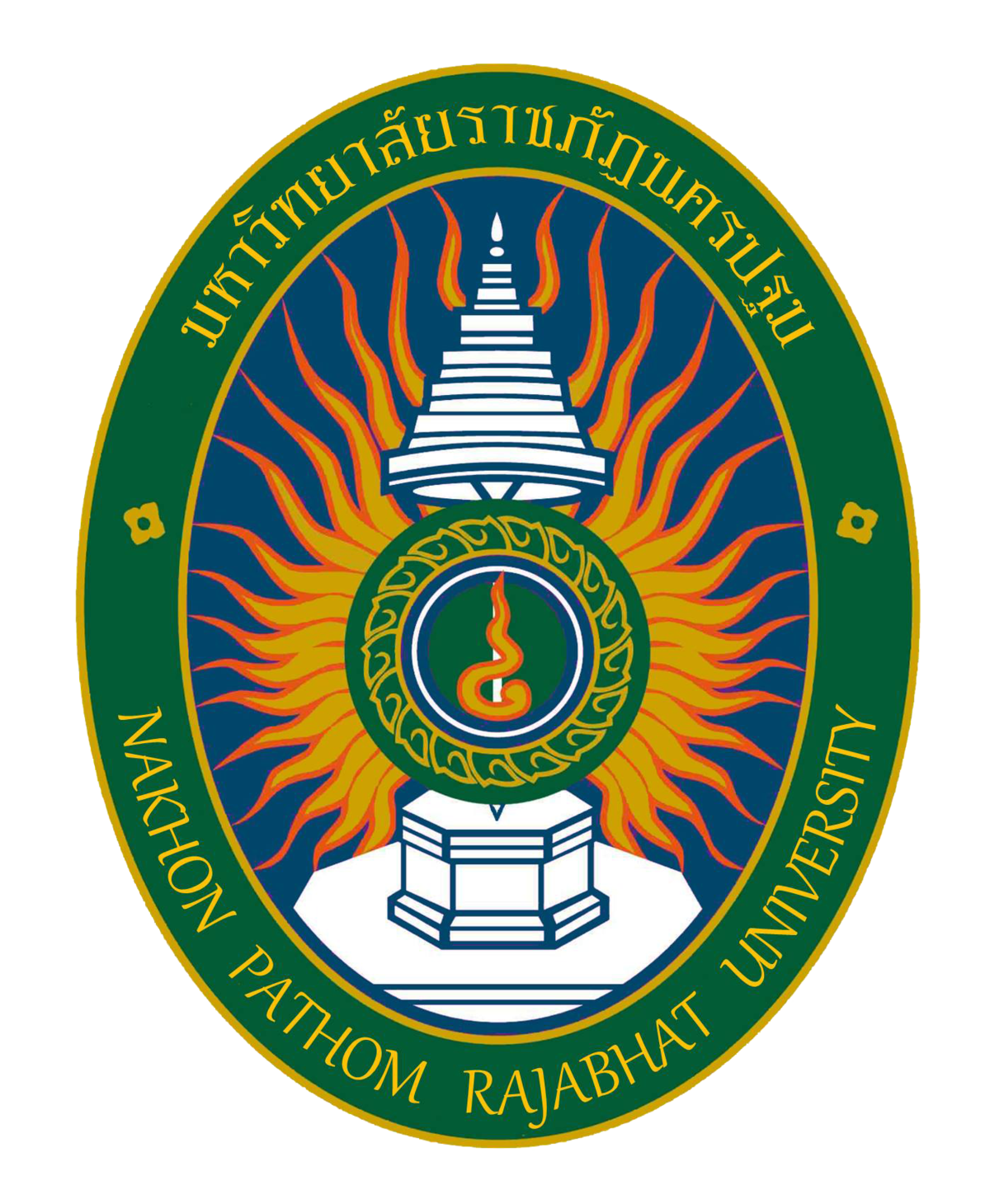
รายชื่อบทความงานประชุมวิชาการระดับชาติ ครั้งที่ 15
(มหาวิทยาลัยราชภัฏนครปฐม)
ระหว่างวันที่ 13 – 14 กรกฎาคม 2566
ณ โรงแรม ไมด้า แกรนด์ ทวารวดี นครปฐม จังหวัดนครปฐมสาขา การท่องเที่ยว และอุตสาหกรรมบริการ
| ชื่อบทความภาษาไทย |
การสร้างความยั่งยืนในผลิตภัณฑ์เกษตรชุมชนด้วยการบริหารจัดการ เชิงระบบนิเวศ |
| ชื่อบทความภาษาอังกฤษ (Title) |
Building sustainable Community agricultural product by using |
| ชื่อผู้เขียนภาษาไทย
(Authors TH) |
ผศ.ดร.วุทธิชัย ลิ้มอรุโณทัย  , , |
| ชื่อผู้เขียนภาษาอังกฤษ (Authors EN)
|
Wutthichai Limarunothai  , , |
| บทคัดย่อภาษาไทย |
การพัฒนาเศรษฐกิจฐานราก เพื่อยกระดับคุณภาพชีวิตของประชากร และลดความเหลื่อมล้ำทางการกระจายรายได้ให้กับประเทศไทย ปัจจัยสำคัญคือการสร้างความยั่งยืนให้กับภาคการเกษตร และแนวทางที่สำคัญคือ คือการสร้างความยั่งยืนให้กับภาคการเกษตร การวิจัยครั้งนี้จึงมีวัตถุประสงค์หลักเพื่อพัฒนาแนวทางในการบริหารจัดการเชิงระบบนิเวศของผลิตภัณฑ์เกษตรอินทรีย์สู่ความยั่งยืน โดยการวิจัยนี้เป็นวิจัยแบบผสมผสานระหว่างการวิจัยเชิงปริมาณและเชิงคุณภาพ ในส่วนการวิจัยเชิงคุณภาพ เป็นการถอดบทเรียน โดยการสัมภาษณ์เชิงลึก จากเกษตรกรที่ทำเกษตรอินทรีย์ นักการตลาด และนักวิชาการในชุมชน จำนวน 9 คน ประกอบด้วย เกษตรที่ทำเกษตรอินทรีย์ ตัวแทนจำหน่ายผลิตภัณฑ์ทางการเกษตร นักวิชาการด้านการเกษตร ในพื้นที่ปริมณฑล และนำมาถอดบทเรียน ในส่วนการวิจัยเชิงปริมาณ เป็นการวิจัยด้วยวิธีการวิเคราะห์สมการเชิงโครงสร้าง (SEM) ใช้แนวทางกำหนดขนาดของกลุ่มตัวอย่างให้สอดคล้องกับการใช้สถิติวิเคราะห์องค์ประกอบ ในการศึกษาครั้งนี้มีจำนวนกลุ่มตัวอย่างเท่ากับ 540 ตัวอย่าง กลุ่มตัวอย่างในการวิจัยคือกลุ่มผู้บริโภคที่สนใจซื้อผลิตภัณฑ์ทางการเกษตรในรูปแบบออนไลน์เพื่อนำมาสังเคราะห์ร่วมกับการวิจัยเอกสาร และสกัดองค์ประกอบ เพื่อหาจำนวนองค์ประกอบ เพื่อนำมาสร้างแบบสอบถามที่นำมาใช้ในการวิเคราะห์ข้อมูล
ผลการวิจัยถอดบทเรียนพบว่า การสร้างความยั่งยืนในผลิตภัณฑ์เกษตรชุมชนด้วยการบริหารจัดการเชิงระบบนิเวศ ประกอบด้วย 5 องค์ประกอบได้แก่ 1) การบริหารการผลิต 2) การบริหารพันธมิตร 3) การบริหารโลจิสติกส์ 4) การบริหารการตลาด 5) การบริหารการจัดจำหน่าย และจากการวิเคราะห์สมการเชิงโครงสร้าง (SEM) พบว่า องค์ประกอบดังกล่าวข้างต้นส่งผลต่อผลิตภัณฑ์การเกษตรชุมชนที่ยั่งยืน สามารถอธิบายความแปรปรวนของโมเดลได้ร้อยละ 83.12 โดยผลการวิเคราะห์เส้นทางมีความกลมกลืนกันกับโมเดลเชิงประจักษ์คือ χ2/df=1.213, p=0.1057, CFI= 0.975, GFI=0.963, AGFI=0.932,RMSEA=0.023
|
|
| คำสำคัญภาษาไทย |
การบริหารจัดการเชิงระบบ, ระบบนิเวศ, เกษตรชุมชน, ความยั่งยืน |
| Abstract |
The Economic-base Development to increase the population‘s quality of life and reduce the difference of income distribution in Thailand. The main factors are to build the sustainability of Thai Agricultural sectors as well as the way to make them sustainability. Therefore the main reason of this research is aim to develop and bring the Ecological Management System of organic products to sustainability. This research is Mixed Methods between quantitative and qualitative research. In qualitative research, is a lesson through the in-depth interview with farmers doing organic farming, marketers, and academics in the community 9 people, consisting of organic farming Agricultural product dealers’ agricultural scholars in metropolitan area bring lessons learned In quantitative research, by using the Structural Equation Analysis (SEM) method, using the method to determine the sample size following the statistical analysis of the composition. The total number of samples in this study was 540 samples. The research sample consisted of consumers interested in purchasing agricultural products online to synthesize with document research and extracting the constituents to find the number of elements to create a questionnaire that is used to analyze the data.
The research results showed that the developed hypothesis model is consistent with empirical data, that is, the Research has found that to build the sustainability on Ecological Management of Community Organic Products contain of 1) Production Management 2) Partnership Management 3) Logistics and Supply chain Management 4) Marketing Management 5) Distribution Management and from the Analysis of SEM and we also found that the mentioned factors are affected to the sustainability of community organic products. In conclusion, the variance of sustainable community agricultural products could be explained by 83.12%. The results of The Structural Equation Modeling results are aligned with the empirical model as: χ2/df=1.213, p=0.1057, CFI=0.975, GFI=0.963, AGFI=0.932, RMSEA=0.023
|
| Keyword |
Systematic Management, Ecosystem, Community agricultural, Sustainability |
| กลุ่มของบทความ |
การท่องเที่ยว และอุตสาหกรรมบริการ |
| รูปแบบการนำเสนอ |
Oral |
| รูปแบบของบทความ |
บทความวิจัย |
| Publication date |
13 - 14 กรกฎาคม 2566 ณ โรงแรม ไมด้า แกรนด์ ทวารวดี นครปฐม |
|
|
